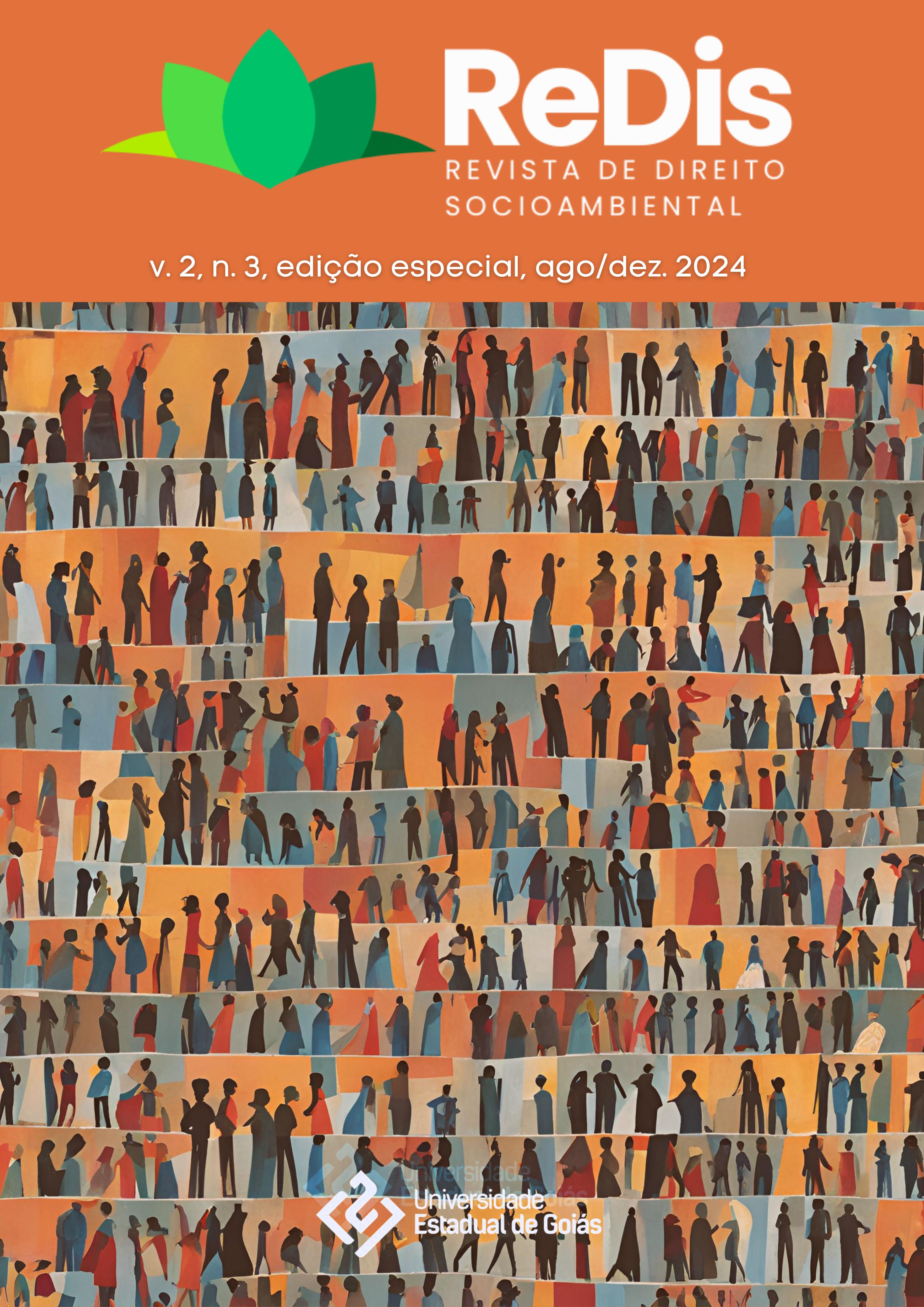A FORM OF SOCIAL AND RELIGIOUS INCLUSION
THE DEAF MINISTRY IN BRAZIL
Keywords:
Exclusion , Inclusion , Deaf Ministry , ReligionAbstract
The inclusion of deaf individuals in the everyday actions of religious life is one of the significant challenges for religious communities in Brazil. The objective of this work is to analyze the process of inclusion (or exclusion) of deaf individuals in the Catholic Church, focusing on the activities of the Deaf Ministry in Brazil. We question whether participation in the activities of the Deaf Ministry helps deaf individuals feel more socially included, thereby reinforcing their dignity. The methodology used involved an online survey with semi-structured interviews conducted in 2022, alongside a bibliographic research of published studies on the topic. We followed four stages in this investigation: religion, exclusion, inclusion, and the Deaf Ministry. The concepts were discussed based on contributions from Otto Marques da Silva, Romeu Kazumi, Maria Teresa Eglér Mantoan, César Augusto de Assis Silva, Luiz Carlos Dutra, Karin Lillian Strobel, Serge Paugam, Simon Schwartzman, as well as inclusive legislation that is a reference on this topic. To better understand the reality experienced by deaf individuals, an empirical study was conducted through a questionnaire containing 12 open and closed questions. The questionnaire was distributed to three groups: agents of the Deaf Ministry, deaf individuals attending the Deaf Ministry in Brazil, and Catholic religious leaders responsible for activities that include deaf individuals. Field research was carried out across the 19 regional offices of the Deaf Ministry of the Catholic Church in Brazil, with 162 interviews conducted.
References
ASSIS SILVA, César Augusto de. Cultura surda: agentes religiosos e a construção de uma identidade. São Paulo: Terceiro Nome, 2012.
BÍBLIA DE JERUSALÉM. 11ª. impr. São Paulo: Paulus, 2002.
BRASIL, Lei nº 10.436, de 24 de abril de 2002. Brasília, Presidência da República, Casa Civil, 2002.
BRASIL, Decreto nº. 5.626 de 22 de dezembro de 2005. Brasília, Presidência da República, Casa Civil, 2005.
BRASIL, Pastoral de Surdo. Estatuto da Pastoral do Surdo do Brasil. Disponível em: < file:///F:/ESTATUTO%20PASTORAL%20SURDO.pdf >. Acesso em: 19/12/21.
CASTEL, Robert. Les metamorphoses de la question sociale: une chronique du salariat. Paris: Fayard, 1995.
CASTEL, Robert. As armadilhas da exclusão. In: Vv. Aa. Desigualdades e a questão social. 2ª ed., São Paulo, Educ, 2004, p. 17-50.
DUTRA, Luiz Carlos. Pastoral da inclusão: pessoas com deficiência na comunidade cristã. São Paulo: Edições Loyola, 2005.
EFFATA, Pastoral do Surdo Nacional. Disponível em: http://www. Pastoraldosurdo .org. br/index.php?id=7&arg=historia&n=Nossa%20hist%C3%B3ria&t=A%20pastoral, acesso em: 19/12/21.
MANTOAN, Maria Teresa Eglér. Inclusão escolar – O que é? Por quê? Como fazer? São Paulo: Summus, 2015.
NAÇÕES UNIDAS. Normas sobre a equiparação de oportunidades para pessoas com deficiência. São Paulo: CVIAN/Apade, 1996.
PAUGAM, Serge. Abordagem sociológica da exclusão. In: Véras, Maura Pardini Bicudo. Por uma sociologia da exclusão social. O debate com Serge Paugam, São Paulo, Educ, 1999, p. 49-62.
PAUGAM, Serge. Que sentido é preciso dá a exclusão? In: Véras, Maura Pardini Bicudo (Ed. e Org.). Hexapolis. Desigualdades e rupturas sociais em metrópoles contemporâneas. São Paulo, Educ, 2004, p. 15-25.
PEREIRA, José Carlos. Religião e exclusão social: a dialética da exclusão e inclusão nos espaços sagrados da Igreja Católica na Metrópole. Aparecida, SP: Editora Santuário, 2009.
REIMER, Ivoni Richter. Trabalhos acadêmicos: modelos, normas e conteúdo. São Leopoldo: Oikos, 2014.
SASSAKI, Romeu Kazumi. Inclusão: construindo uma sociedade para todos. Rio de Janeiro: WVA, 1997.
SASSAKI, Romeu Kazumi. O novo poder: seu impacto nas entidades assistenciais. São Paulo, 1995.
STROBEL, Karin. As imagens do outro sobre a cultura surda. Florianópolis: Ed. da UFSC, 2008.
VIER, Frei Frederico. Compêndio do Vaticano II: constituições, decretos, declarações. 29. ed. Petrópolis: Vozes, 2000.
Downloads
Published
Issue
Section
License
Copyright (c) 2024 Social and Environmental Law Journal

This work is licensed under a Creative Commons Attribution-NonCommercial-NoDerivatives 4.0 International License.
The author(s) agree(s) and declare(s) that:
- They have provided accurate and truthful information and have not created a false identity or used subterfuge with the intent to deceive individuals, institutions, or obtain benefits of any kind;
- They are solely responsible for any and all information provided and are subject to administrative and legal consequences arising from inaccurate or false statements (Articles 298 and 299 of the Brazilian Penal Code) that may cause harm to the Journal or third parties;
- They have not used the Journal for illegal, unlawful, or prohibited purposes, nor for actions that violate the privacy or rights of third parties, including copyright or intellectual property rights.


